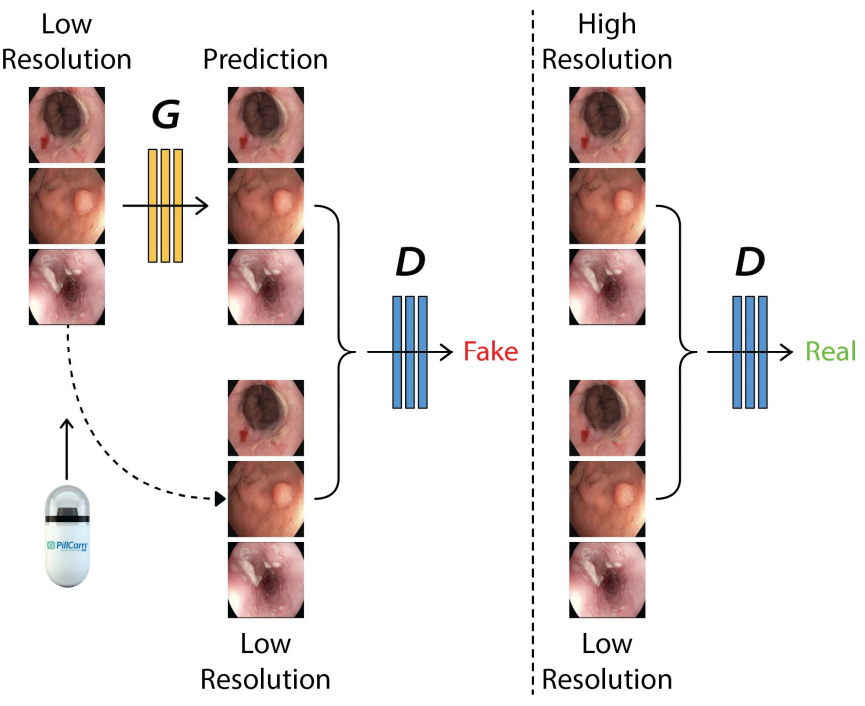EndoL2H: Deep Super-Resolution for Capsule Endoscopy
Almalioglu Y, Ozyoruk KB, Gokce A, Incetan K, Gokceler GI, Simsek MA, Ararat K, Chen RJ, Durr NJ, Mahmood F, Turan M
IEEE Transactions on Medical Imaging 39:12 2020
Abstract
Although wireless capsule endoscopy is the preferred modality for diagnosis and assessment of small bowel diseases, the poor camera resolution is a substantial limitation for both subjective and automated diagnostics. Enhanced-resolution endoscopy has shown to improve adenoma detection rate for conventional endoscopy and is likely to do the same for capsule endoscopy. In this work, we propose and quantitatively validate a novel framework to learn a mapping from low-to-high-resolution endoscopic images. We combine conditional adversarial networks with a spatial attention block to improve the resolution by up to factors of 8× , 10× , 12× , respectively. Quantitative and qualitative studies demonstrate the superiority of EndoL2H over state-of-the-art deep super-resolution methods Deep Back-Projection Networks (DBPN), Deep Residual Channel Attention Networks (RCAN) and Super Resolution Generative Adversarial Network (SRGAN). Mean Opinion Score (MOS) tests were performed by 30 gastroenterologists qualitatively assess and confirm the clinical relevance of the approach. EndoL2H is generally applicable to any endoscopic capsule system and has the potential to improve diagnosis and better harness computational approaches for polyp detection and characterization. Our code and trained models are available at https://github.com/CapsuleEndoscope/EndoL2H.
